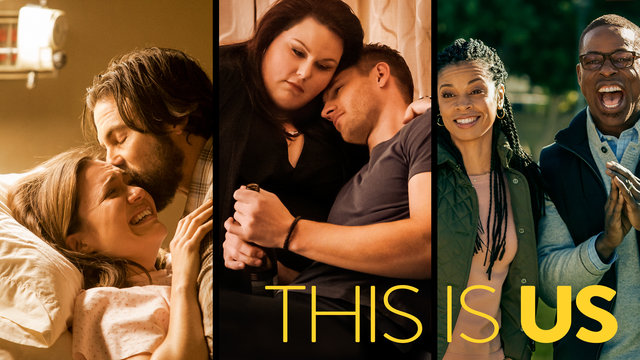NBC’s “This Is Us” wants to be comfort food TV but has more in common with a placebo as it feigns emotional importance or sincerity. In the case of its overwritten pilot, premiering tonight at 10/9c, the show is constructed to have emotional climaxes and revelations in nearly every scene; it treats the art of dramatic writing as a science. It’s all capped off by a series-defining, gut-punch twist at the end, one that sets up the rest of the show from here. No, the twist (which I won’t spoil) isn’t that they’re all ghosts, or Tyler Durden, but let’s just say I’ve seen this surprise used better in a “Final Destination” movie.
The initial hook of the show is that it introduces us to people who are all turning 36 on the same day. Jack (Milo Ventimiglia) is celebrating his birthday at the hospital, where his very pregnant wife Rebecca (Mandy Moore) is set to deliver triplets. Meanwhile, a successful businessman named Randall (Sterling K. Brown) finds out new information about the location of his father who abandoned him 36 years ago, and hides that secret when his coworkers come into his office with a birthday cake for his 36th birthday. Somewhere else in the world, Kate (Chrissy Metz) wakes up alone on her birthday, and faces her overweight problem with little Post-its written on various food items in her house. In the same montage, all of it slathered in a delicate Sufjan Stevens song, Hollywood actor Kevin (Justin Hartley) wakes up with two women, who adore him for his work on sitcom “The Manny,” but he spends his birthday morning talking out loud about wanting more from his career. It is soon revealed that Laurie and Kevin are brother and sister, the two finding comfort in each other’s presence when it seems like no one understands them.
“This Is Us” is performed by an amenable batch of actors, and some stand out (recent Emmy winner Sterling K. Brown, in particular). But in playing these stock, innocuous characters, they are not what makes this pilot interesting—it’s the puppeteer himself, writer Dan Fogelman. His arrangement of these different fictional beings and their lives and goals is swift and slick. Of course, like his screenplay for “Crazy, Stupid, Love.” (also helmed by pilot directors Glenn Ficarra and John Requa), he cannot resist abrupt shifts in dramatic direction within limited character roster, which makes for a couple surprising moments early on. But his ego and gooey heart get the better of him. Using a disillusioned Kevin as his mouthpiece, “This Is Us” takes a moment during a taping of “The Manny” to rip on fake, very successful sitcoms and blame audiences for indulging other shows that are not honest. This sequence, along with its ruthlessly shiny idea of human conflict, gives “This Is Us” a thick layer of self-righteousness. Even the clunky title starts to feel smarmy, as if this cheese-fest were trying to enlighten viewers, albeit with overly neat characters living in between Magic Moments.
And then, there’s the twist. The worst part about it is that it means nothing to the actual characters’ narrative, merely tricking the audience while being dressed up as a profound emotional revelation. And all of the work of this hour-long piece of stunt-writing may not mean anything when the opening credits of the second episode presents these characters and probably with the same depth, too. Yes, the lives of Jack, Randall, Laurie and Kevin are now established and perhaps future episodes will even be slower-paced. But as it races to its big reveal, “This Is Us” lays clear the boring narrowness of its dramatic ability. You may not know where the story goes next, but you know exactly what it will always and only feed you.












